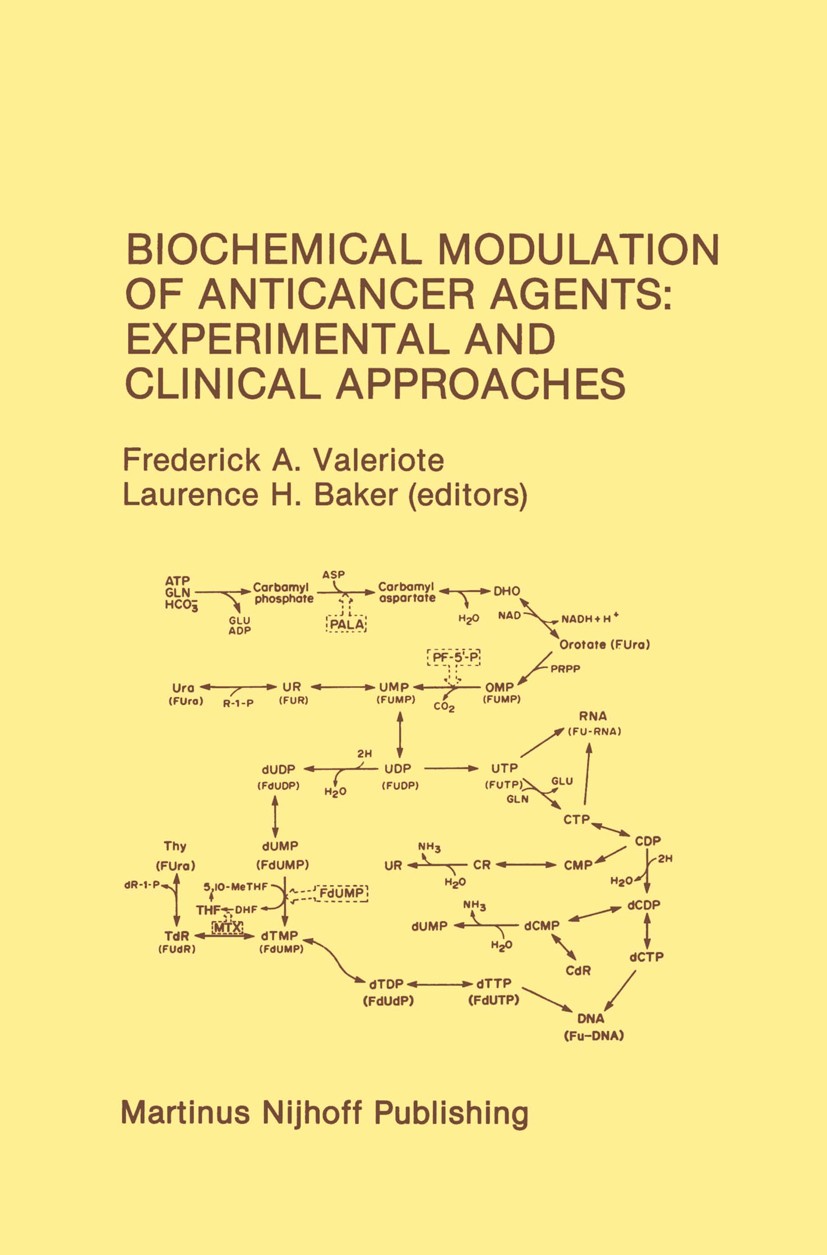| 期刊全称 | Biochemical Modulation of Anticancer Agents: Experimental and Clinical Approaches | | 期刊简称 | Proceedings of the 1 | | 影响因子2023 | Frederick A. Valeriote,Laurence H. Baker | | 视频video | http://file.papertrans.cn/187/186563/186563.mp4 | | 学科分类 | Developments in Oncology | | 图书封面 |  | | 影响因子 | Biochemical Modulation at the present time defines an area of study in which the intracellular metabolism of a given anti cancer agent is modulated (usually by a noncytotoxic agent or a cytotoxic agent at sufficiently low dosage to make it non cytotoxic) in order to either increase the effectiveness of the particular agent against tumor cells or decrease its cytotox icity against normal cells. The major focus of modulation has been the agents 5-fluorouracil (FUra), arabinofuranosylcytosine (ara-C), methotrexate (MTX) and a few alkylating agents. The major thrust of the studies has been to increase the flow of the anticancer agent along the pathway responsible for the formation of the cytotoxic species: for example, FUra to FUTP or ara-C to ara-CTP. While in most cases the application of research re sults to clinical trials does not require the subsequent exper tise of the laboratory researchers, application of biochemical modulatory schemes to clinical protocols necessitate a dramatic break with the past procedures. As shown in the laboratory clinical loop below, close collaboration between the laboratory and clinical investigator is essential. While the laboratory REDEFINE T | | Pindex | Conference proceedings 1986 |
The information of publication is updating

|
|
 |Archiver|手机版|小黑屋|
派博传思国际
( 京公网安备110108008328)
GMT+8, 2026-2-8 14:26
|Archiver|手机版|小黑屋|
派博传思国际
( 京公网安备110108008328)
GMT+8, 2026-2-8 14:26


